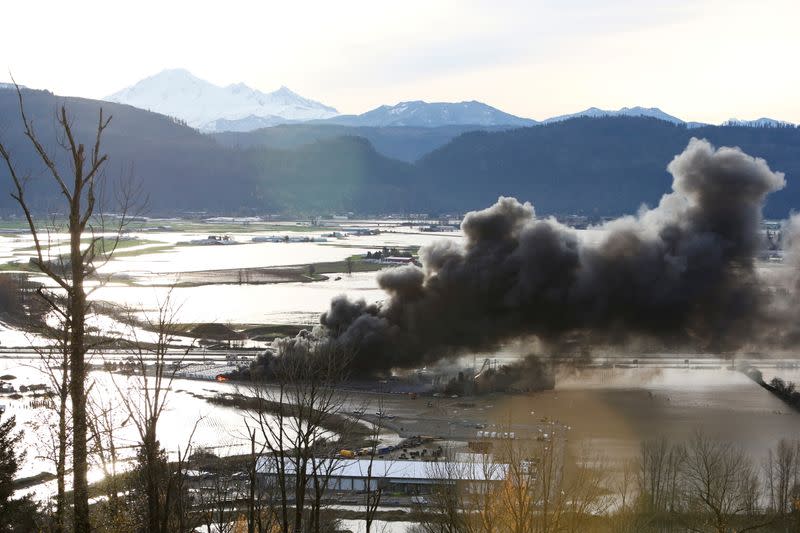Explainer-How a 'river in the sky' caused massive flooding in Canada

By Lisa Shumaker and Timothy Gardner
(Reuters) - Atmospheric rivers of the sort causing massive floods and mudslides in Canada's British Columbia are akin to a river in the sky, weather systems that carry up to 15 times the volume of the Mississippi River, according to the NASA Earth Observatory.
The one that hit British Columbia dumped a month's worth of rain in two days, forcing a quarter of all residents in one town to seek shelter.
They appear as a trail of wispy clouds that can stretch up to hundreds of miles and bring much-needed rain or snow to the Pacific Northwest, Chile, western Europe and South Africa.
The largest of these atmospheric rivers can bring extreme flooding, according to the National Oceanic and Atmospheric Administration.
Scientists say warmer air and water temperatures from climate change can lead to more evaporation for storms to absorb and dump.
Research projects that climate change will cause atmospheric rivers to become 25% longer and 25% wider and to carry more water.
In addition to the flooding this week in British Columbia, last month a powerful storm that meteorologists described as an atmospheric river mixed with a "bomb cyclone" washed over wildfire-scarred northern California. The storm brought much-needed rain but also plagued the region with mudslides and downed power lines.
In 2019, an atmospheric river nicknamed the "Pineapple Express" hit California. The water vapor from near Hawaii brought rain and triggered mudslides that forced motorists to swim for their lives and sent homes sliding downhill.
(Reporting by Lisa Shumaker in Chicago and Timothy Gardner in Washington; Editing by Howard Goller)


